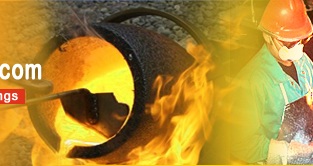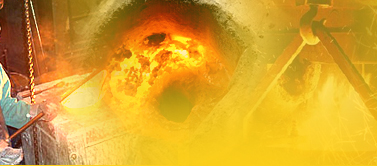Introduction: Tensile strength is the tensile (stretching) that a metal can withstand when force is applied on it. High tensile castings are crucial components for automotives, building const

ructions and other engineering activites. Therefore, it is very essential to determine the tensile strength of the metal before using it for any application. The relvance of high tensile casting has made it an important topic of study in the field of material science, mechanical engineering and structural engineering.
Tensile strength is one of the most most important properties that determines the quality of metals and alloys. Tensile properties indicates how ropes, wires or other structural beams will reacts when force is applied on them. An alloy with high tensile stength can withstand maximum amount of tensile stress. The tensile strength of steel in high, therefore it is used widely for many applications in aircraft, automotive and general engineering industries. But the property of every material differs according to the the combination of alloy components and the design methodology.
The tensile strength however does not depend on the size of the metal. Factors like method of manufacture of the alloys and their basic properties also determine the tensile strength. High tensile strength is found is steel, hence high tensile steel casting can withstand stretching to a large extend. Therefore, steel castings ind an integral position in the engineering for building, bridges, automotives, etc.
Tensile strength is also know by three different names, based on the stress factor, which are as follows:

- Yield strength: The point of stess when the product becomes permanently deformed. For eg. the deformation in pipelines which is beyond repairs.
- Ultimate strength: The utmost stress that a thing can withstand before it breaks. For eg. the pipes will break when is has loads beyond capacity.
- Breaking strength: The amount of stress or load that can be applied on before the product breaks.
Testing Tensile Strength: Tensile tests are used to determine the modulus of elasticity, elastic limit, elongation, proportional limit, reduction in area, tensile strength, yield point, yield strength and other tensile properties. Test is done by placing the metal in the jaw of a tensile machine. Amount of tensile strength required to break the metal is recorded. Yield strength is recorded which is the stress a material can withstand without permanent deformation. The maximum load applied in breaking a tensile test piece is divided by the original cross-sectional area of the test piece. Originally measured tons/sq.in. it is now mentoned as Newtons/sq.mm.
Application: High tensile casting are available inboth ferrous and non-ferrous alloys. A variety of casting are made that an be used even hazardous environments, including those underground. High tensile steels are used for a variety of application where optimum strength is required like automotive and general engineering applications. Some of the prevalently used hight tensile casings are shafts, connecting rods, pump and gear shafts, die holder blocks, components for the aircraft, propeller shafts, connecting rods, gear shafts, and other automobile parts, etc.

Advantages:
- Withstands high stress without deformation or breaking
- Immense strength
- Quality look
- Resistance to abrasion, corrosion and wear
- Matchless surface finish.


